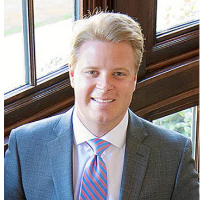 Winfield DUI-DWI Lawyers, Tennessee
Winfield DUI-DWI Lawyers, Tennessee
Sponsored Law Firm
-
 x
x

Click For More Info:
-
Keches Law Group
122 Dean Street Taunton, MA 02780» view mapSocial Security, Personal Injury, Workers Comp. Protecting Your Rights
Our team of experienced personal injury attorneys has over 130 years of combined experience representing individuals and families injured due to the negligence of others.
800-713-8650
Sponsored Lawyers
1-4 of 4 matches
Criminal, DUI-DWI, Misdemeanor, Felony
Mr. Lewis graduated from the University of Tennessee College of Law in May of 2015. While there he conducted legal research for the Knox County Public Defender's Office. He is a member of the Order of the Barristers. He and his loving wife Emily raise their family in East Tennessee where they can be found at the library, on the trampoline, or riding the rides at Dollywood.
(more)Criminal, DUI-DWI, White Collar Crime, Felony, Misdemeanor
Knoxville Tennessee Criminal Defense Lawyer Jeffrey Coller handles both state and federal charges including misdemeanors and felonies. He focuses on cases involving search and seizure, suppression of evidence, and standardized field sobriety testing. He knows and understands how critical your case is to you. To schedule a free consultation with Attorney Coller, visit his website, or call 865-281-1000.
(more)Criminal, DUI-DWI, Accident & Injury, Civil Rights, Wrongful Death
The Baker Law Firm and our founding attorney, Lance K. Baker, can help you resolve even the most complex and challenging legal problems. Our firm's founding attorney has garnered recognition both nationally and locally. In the past several years he has received the following designations: Listed in The National Trial Lawyers 2017 Top 40 Under 40 in the Criminal Defense category Listed in The National Trial Lawyers 2018 Top 40 Under 40 in the Civil Plaintiff Lawyers category Named Top Male Rising Star of Knoxville by the Cystic Fibrosis Foundation Honored in 2019 as one of Knoxville's top DUI defense attorneys by Cityview magazine Honored in 2021 as one of Knoxville's top Civil Rights attorneys by Cityview magazine Honored in 2022 as one of Knoxville's top attorneys by CityView magazine in DUI Defense, Constitutional Law/Civil Rights, Personal Injury- Auto Accidents, Consumer Protection, Class Action, and Antitrust Selected as one of 2022 Mid-South's Rising Stars by Super Lawyers Selected as one of 2023 Mid-South's Rising Stars by Super Lawyers Lance is actively involved in the community. For instance, he is a panelist on Fox 43's “Heavy Hitters” show and frequently offers guest political commentary on WBIR-TV. He is also a member of the Knoxville Bar Association and the Tennessee Bar Association.
(more)


 Sean Flaherty Taunton, MA
Sean Flaherty Taunton, MA AboutKeches Law Group
AboutKeches Law Group Practice AreasExpertise
Practice AreasExpertise



